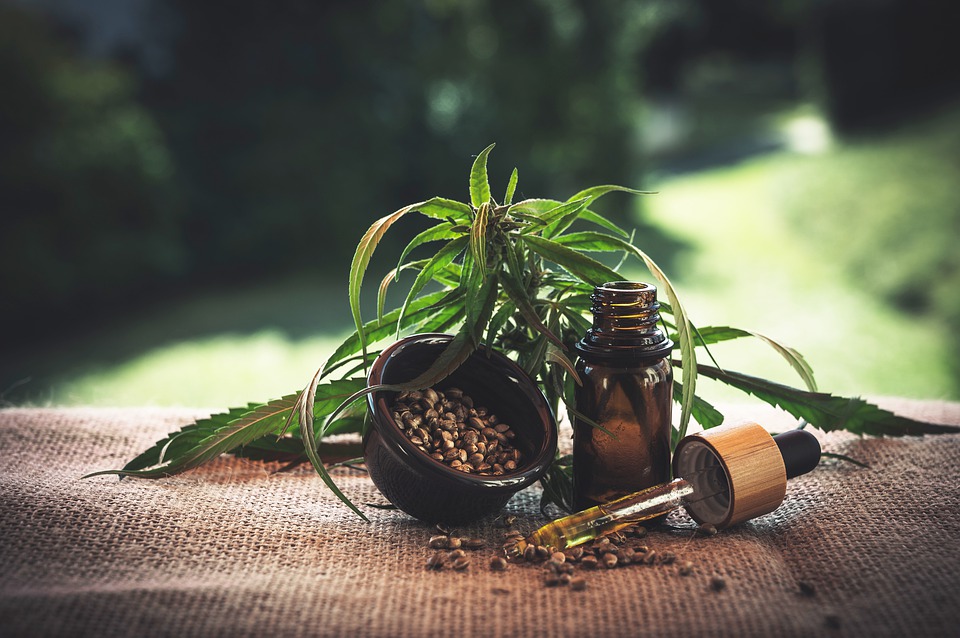Cannabidiol (CBD) is one of the many chemical compounds from the Cannabis sativa plant. These plants are popularly known as marijuana or hemp. Unlike tetrahydrocannabinol (THC), the main ingredient in marijuana that causes the high, CBD is non-psychoactive. It is now gaining popularity for its antioxidant, anti-inflammatory, and pain-relieving benefits.
CBD’s legalization
More people can reap the benefits of CBD thanks to the 2018 Farm Bill that was signed into law by Donald Trump. Before this law, the Controlled Substances Act (CSA) did not acknowledge specific differences between marijuana and hemp—and these products have been controlled by the Drug Enforcement Administration (DEA), according to Principal Deputy Commissioner Amy Abernethy’s testimony.
The 2018 Farm Bill removed hemp, which includes low-THC derivatives of cannabis, such as CBD products, from the definition of marijuana in the CSA. Through this, a variety of CBD products are slowly making their way in the market, from oils, tinctures, vapes, and edibles to lotions, balms, and concentrates.
Federal Regulations On CBD Products
The Food and Drug Administration (FDA) has authority over CBD products. This means that CBD for sale in the market must meet all the requirements and standards as other FDA-regulated products.
For them to be permissible in the market, CBD products must not contain more than 0.3% THC. When it comes to packaging, labeling, and advertising, CBD companies must observe FDA regulations. CBD businesses must state honest claims and provide transparent information about the products.
The CBD industry also faces some challenges with the federal regulations. One of which is that the states can stop hemp production if they see the need for it. This means that at any given time, CBD companies may lose suppliers. Another challenge stems from this, as there are uncertainties with shipping CBD products across states.
For the longest time, CBD products have still been considered illegal and are still commonly associated with marijuana; this causes the unnecessary stigma around it. In addition to that, because CBD’s legalization is only recent, most of the regulations around it are vague and are still subject to change. Due to these challenges, the CBD industry is considered by the government and financial institutions as high-risk.
Merchants belonging to the high-risk industry are believed to attract a high number of commercial disputes or chargebacks and legal restrictions. This means that these industries, including CBD, won’t work with traditional merchants for their transactions.
Using High-Risk Merchant Services
Most financial institutions keep away from high-risk businesses to minimize the hassle of disputes and chargebacks that will cost them money and time. Considering that the CBD industry is under the high-risk category, companies should turn to high-risk merchant services to provide payment processing for their sales transactions. High-risk merchant services are designated accounts for businesses considered high-risk by banks.
Without high-risk merchant services, CBD companies may need to set a transaction limit per month, pay higher fees for processing payment, or even be denied service fully. Aside from the fact that these merchants are designed to cater to high-risk businesses, here are some reasons why CBD companies best opt for high-risk merchant services:
Chargeback assistance
High-risk merchants are not too strict with chargebacks as compared to traditional ones. Traditional merchants would terminate an account after reaching a certain amount of chargebacks.
Given that these high-risk merchants are aware of the possibilities for disputes, they are prepared to accommodate high-risk companies with a lesser chance of account termination.
High-risk merchants can detect any potential problem and have set preventive measures to lessen the impact on the company. Most high-risk merchants would require a reserve account to prevent these chargebacks from negative effects to the business. It may be an additional cost, but high-risk companies must keep their businesses secure.
Stronger Security Measures
Given that CBD companies are high-risk, it is of utmost importance that all payment transactions are inspected and made secure. Most of the high-risk merchants utilize a secure strategy to detect a fraudulent card or transaction. Through this, the company is protected as well as the customers and cardholders.
No cap transactions
Traditional merchants may limit transactions to the country where the business is. Working with high-risk merchants opens the chances for transactions with multiple currencies all over the world.
This is also a good opportunity to take advantage of selling online which is starting to be the trend these days. Aside from this, most high-risk merchants do not have limitations per month, and businesses can freely transact as they please.
Conclusion
The CBD industry is still quite new and confusing, but it is best to choose what will be good for the business in the long run. Partnering with high-risk merchants provides the security any high-risk company needs from possible fraud and chargebacks. It also opens up the company’s opportunity to go global and reach more customers.
